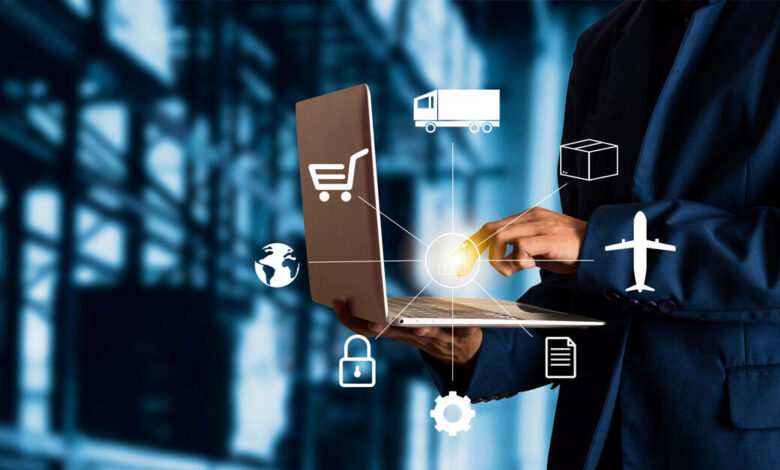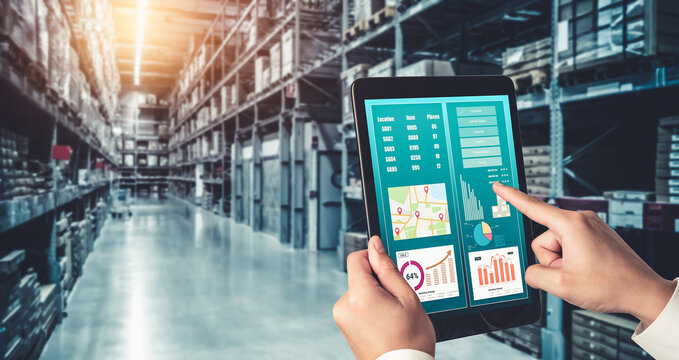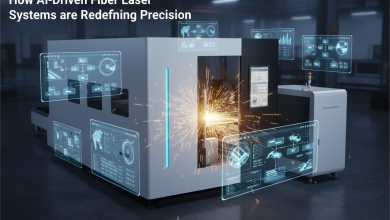
Artificial Intelligence (AI) is causing a massive revolution in the landscape of logistics. In the past, supply chains were manual and had isolated information systems but are now transforming into intelligent ecosystems that are data driven and powered by AI algorithms. This article will explore how AI is changing logistics, leading to a more efficient, faster and smarter industry.
From Static to Predictive: The Power of AI-Driven Demand Forecasting
One of the major contibution made by AI is its ability to revolutionize demand forecasting. Today’s volatile markets have often seen the collapse of traditional approaches that rely on historical data and straight-line projections. AI takes over with its analytical competence that it uses in analyzing large volumes of information. This information includes market trends, consumer behavior, social media sentiment, economic indicators among others. The complex union of these elements creates highly precise predictions about future demand by AI algorithms. By so doing, businesses are empowered with foresight that helps them optimize their inventory levels to have enough stock for customers’ requirements without experiencing the stress of excessive storage costs. For instance, Coca Cola employs AI which gathers insights from various sources of data. Consequently, they can predict the market demand accurately hence leading to an efficient distribution network and a manageable inventory system
Optimizing the Flow: AI-Powered Route Planning and Inventory Management
Seamless movement is all about logistics, and the AI is the latest navigation tool. AI algorithms take over the driving in terms of optimizing delivery timetables, routes and traffic networks. Deep in depth working structure of these algorithms ca be understood from data science course. With streaming information systems on traffic status, weather patterns and even road diversions, AI constructs the most expedient paths possible. This implies faster deliveries as well as huge savings through fuel consumption reduction and thus reduced emission rates. A case in point would be DHL, one of the world’s leading logistical firms that has incorporated route optimization using AI technology. Their network takes into account various considerations to devise the best ways resulting to quicker service provision to customers on one side while also being environmentally friendly.
Similarly, inventory management benefits from artificial intelligence. Using sales data, historical trends, and even seasonal variations to choose optimal levels of stock is influenced by AI algorithms. This ensures that there are sufficient products to meet demand while avoiding costs associated with excessive inventory holding. It is worth noting Amazon’s warehouses which are run by AI. Smart systems anticipate future orders ensuring they always have just enough stock on hand at any given time. As a consequence their customers not only enjoy improved convenience but also lower fees for storage facilities.
Transparency and Efficiency: The Marriage of AI and Blockchain
This domain of logistics is not solely about how fast and efficiently things happen, it also entails trust and transparency. Thus AI collaborates with blockchain technology to form a formidable combination.Infact, Block chain has its secure and distributed ledger system that yields a tamper-proof record of all steps done by any product in the supply chain. On the other side, this data is analyzed by artificial intelligence that provides real-time insights about the product’s journey.AI gives businesses an unprecedented ability to track goods more accurately, detect possible bottlenecks and ensure timely delivery. The case of Walmart’s implementation of Blockchain in food tracking is instructive here. Their system uses AI to go through all the information stored on the blockchain so as to get real- time feedbacks on where food is located which further improves transparency and enhances efficiency along their supply chain. Infact in most of the supply chain retail business full stack development with frontend as well as backend also plays a major to understand the complete product life cycle. More about full stack development you can get from full stack developer course.
Key Areas of Impact
- Predictive Analytics for Demand Forecasting: AI is unsurpassed in analyzing huge amounts of data to anticipate future trends with uncanny accuracy. By figuring out the patterns in consumer buying habits, demand during different seasons and market dynamics, firms are able to optimize stock levels reducing both understocking as well as over stocking thus minimizing wastage and maximizing profits.
2. Automated Warehouse Management: Drones and robots empowered by Artificial intelligence have changed how warehouses work with automated picking, packing, sorting etc that was done manually before. These smart systems do not only minimize processing time but also reduce human error leading to an improved efficiency overall.3. Enhanced Transportation Routes: AI algorithms determine efficient delivery routes based on historical traffic data, weather reports and current road conditions. This dynamic route optimization helps in saving fuel consumption as well as reducing delivery times hence contributing towards a greener and more cost-effective logistics operation.
4. Supply Chain Visibility and Monitoring: AI systems provide visibility across the entire supply chain by tracking products right from their manufacturing stages up to delivery stage. With this openness, companies can monitor shipments status in real-time so that they can be fixed when still small or prevent potential risks early enough.
5. Customer Service and Satisfaction: Customer services get better through the use of AI chatbots which give instant responses on inquiries or shipment updates among others done via virtual assistants. Superior customer experience results in increased satisfaction rates plus loyalty too
The Road Ahead: A Future Powered by AI
As the AI evolves further, it will have more influence on logistics. We can anticipate a greater merging of AI with robotics in warehouse automation which will result in even faster and leaner operations. To effect prompt customer service, the AI-powered chatbots are uniquely designed to give live tracking of orders as well as pre-emptive engagement. The use of sensor data from equipment for predictive maintenance via AI analytics will eliminate unforeseen machine failures and ensure smooth operation within the supply chain.
In conclusion, the Artificial Intelligence is not just changing but remaking logistics. Through adopting AI businesses have created smart supply chains that are more efficient, responsive and sustainable. The future of logistics would be marked by speed, precision and transparency if we consider what happens as AI develops further.






